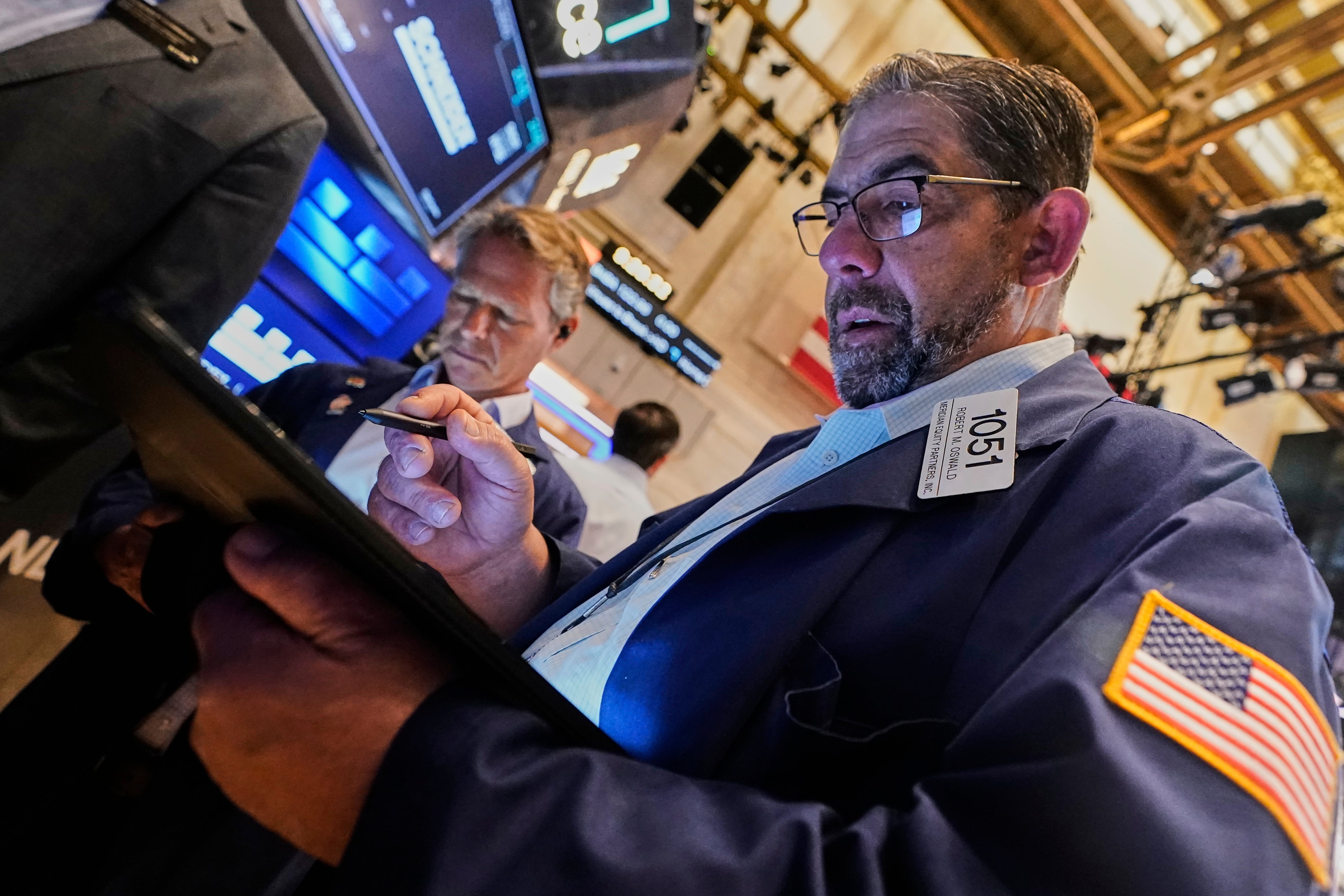NEW YORK (AP) — U.S. stocks are falling on Friday after President Donald Trump threatened 50% tariffs on the European Union that could begin in a little more than a week.
The S&P 500 was down 0.4% in afternoon trading and on track for its worst week in the last seven. The Dow Jones Industrial Average was down 132 points, or 0.3%, as of 1:58 p.m. Eastern time, and the Nasdaq composite was 0.6% lower.
Trump threatened the tariffs before the U.S. stock market opened, saying on his Truth Social platform that trade talks with the European Union “were going nowhere” and that “straight 50%” tariffs could go into effect on June 1. The European Union is one of the United States’ largest trading partners.
Stocks fell immediately afterward in Europe, with France’s CAC 40 index losing 1.7%, and the threat shook the futures market for U.S. stock indexes, which earlier had been suggesting only modest moves at the open of trading. U.S. stock indexes fell less than their European counterparts, but the damage was still widespread, and about 60% of stocks within the S&P 500 sank.
Apple dropped 2.6% and was one of the heaviest weights on the index after Trump went after the company specifically. He said he’s been pushing Apple CEO Tim Cook to move production of iPhones sold in this country to the United States, and he warned a tariff “of at least 25% must be paid by Apple to the U.S.” if it doesn’t.
Trump has been criticizing companies individually when he’s frustrated with how they’re acting because of his tariffs and because of the uncertainty his trade war has created. He earlier told Walmart it should “eat the tariffs,” along with China, after the retailer said it would likely have to raise prices to cover the increased cost of imports.
Deckers Outdoor, the company behind the Hoka and Uggs brands, became one of the latest companies to say all the uncertainty around the economy means it won’t offer financial forecasts for the full upcoming year. Instead, it gave forecasts only for the upcoming quarter, and they fell short of analysts’ expectations for revenue and profit.
That sent its stock down 19.6%, even though the company reported a stronger profit and revenue for the latest quarter than expected.
Ross Stores fell 11.1% after it pulled its financial forecasts for the full year, citing how more than half the goods it sells originate in China. “As such, we expect pressure on our profitability if tariffs remain at elevated levels,” CEO Jim Conroy said.
The off-price retailer gave a forecast for profit in the current quarter that included a hit taken from tariffs, and it fell short of analysts’ expectations. That dragged its stock down even though the company also reported a better profit for the latest quarter than expected.
“The volatility of trade policies and the corresponding impact on the economy, the consumer, and our profitability is highly unpredictable,” Conroy said.
On the winning side of Wall Street was Intuit, which rose 8.4% after the company behind TurboTax and Credit Karma reported a stronger profit for the latest quarter than analysts expected thanks in part to a strong tax season. Perhaps more importantly, Intuit also raised its forecasts for revenue and profit over its full fiscal year.
Trump’s latest tariff threats are stirring up Wall Street after it had recovered nearly all of the losses it had earlier taken because of the trade war. The S&P 500 dropped roughly 20% below its record at one point last month, when worries were at their height about whether Trump’s stiff tariffs would cause a global recession. The index then climbed back within 3% of its all-time high after Trump paused his tariffs on many countries, most notably China.
In the bond market, Treasury yields fell after swinging back and forth a few times. The yield on the 10-year Treasury eased to 4.51% from 4.54% late Thursday.
It had been running higher earlier in the week, in part on worries about how Washington’s efforts to cut taxes could add trillions of dollars to the U.S. government’s debt. Higher Treasury yields can drive up mortgages and rates for other kinds of loans, which can in turn slow the economy. They also can discourage investors from paying high prices for stocks and other investments.
In stock markets abroad, indexes were mixed in Asia, where markets closed before Trump issued his latest tariff threats. Tokyo’s Nikkei 225 rose 0.5%, while stocks fell 0.9% in Shanghai.
The price of gold, meanwhile, climbed 2.1% as investors looked for safer places to park their cash.
—-
AP Writers Matt Ott and Jiang Junzhe contributed.









